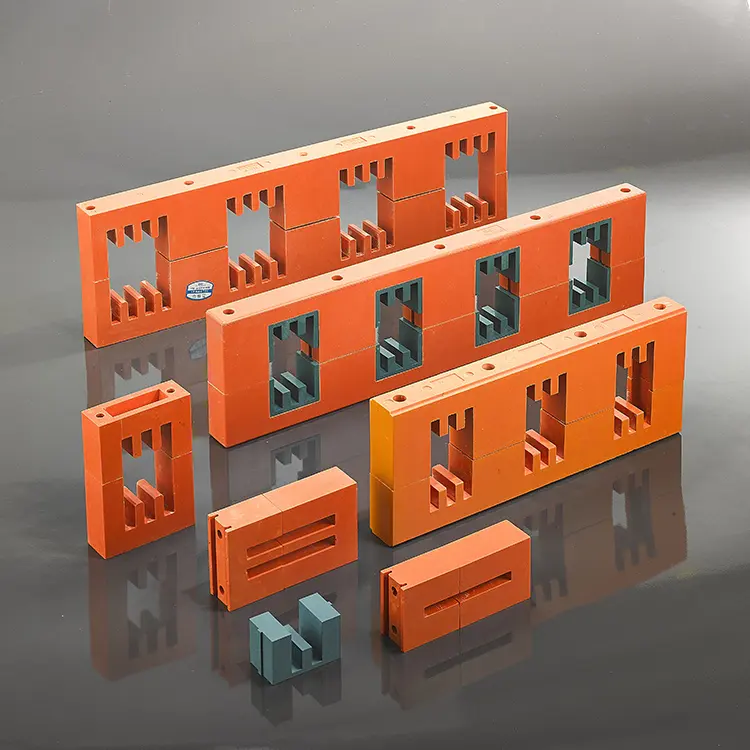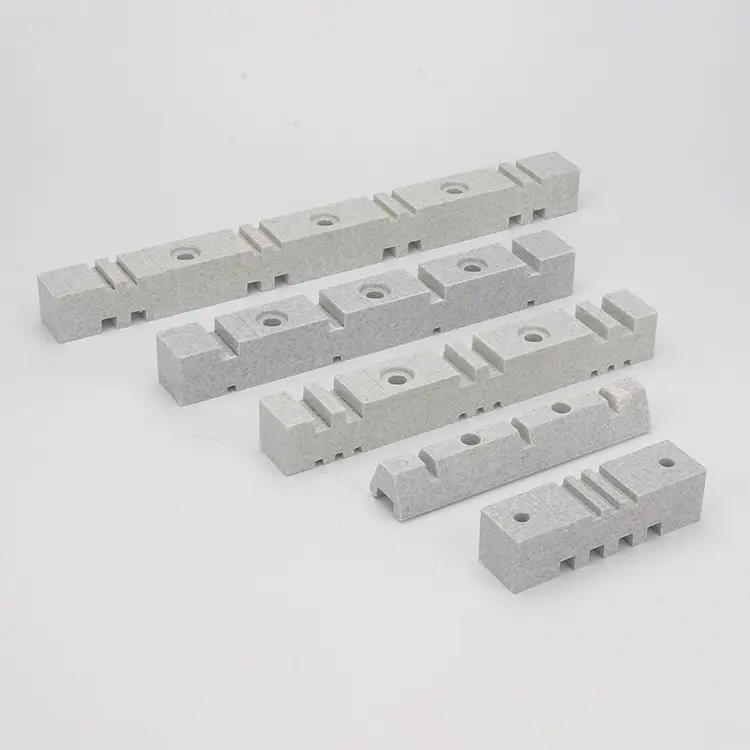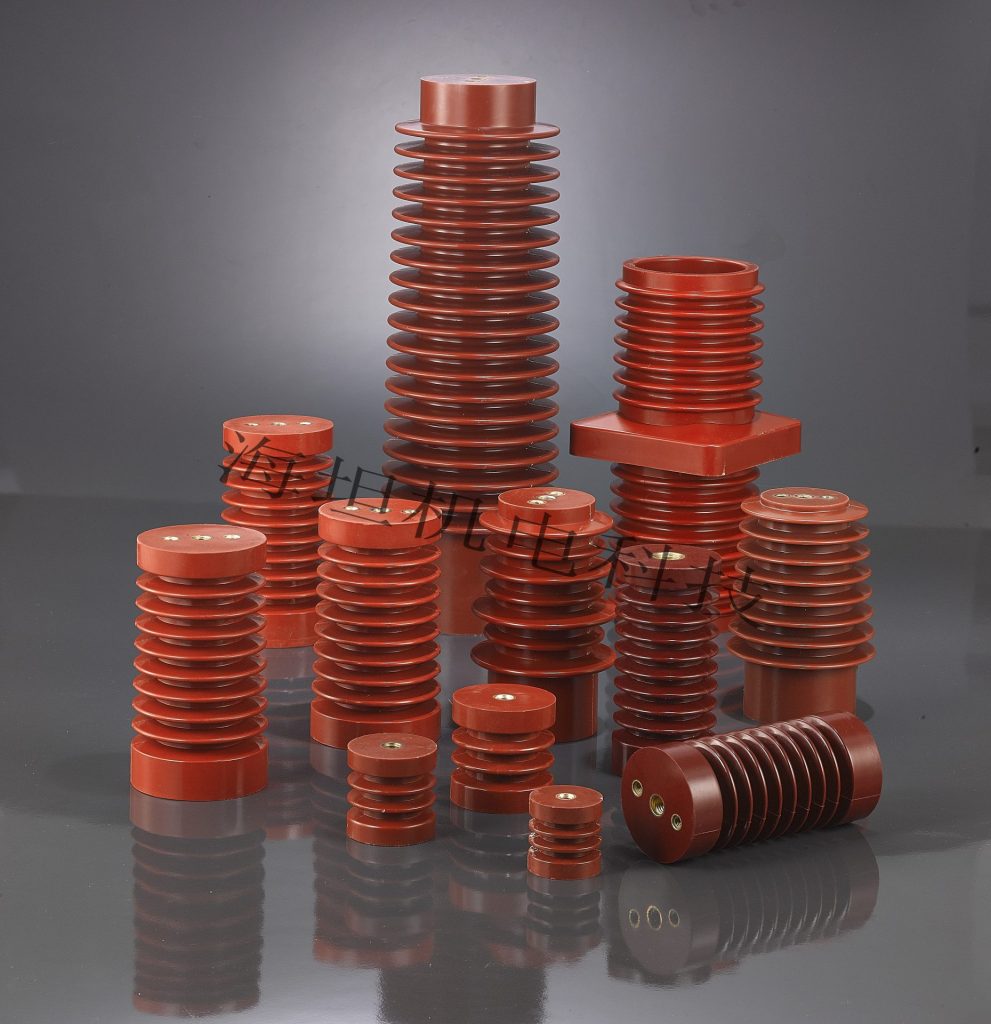Evolution of SMC Busbar Support in Excellence
What is SMC busbar support?
SMC busbar support, or Sheet Molding Compound busbar support, is an essential component in electrical systems for providing insulation and mechanical support to busbars. These supports are commonly used in medium to high voltage applications where reliable insulation and structural integrity are paramount. SMC busbar supports offer several advantages over traditional materials such as porcelain or glass, including higher strength-to-weight ratio, corrosion resistance, and excellent dielectric properties.
Manufacturers of SMC busbar supports adhere to strict specifications to ensure the highest quality and performance of these insulators. The material composition of SMC busbar supports typically includes a blend of thermosetting resins, reinforcing fibers, and fillers that are molded under high pressure and temperature to form a strong and durable insulating structure.
The precise formulation of SMC allows for customization based on specific application requirements, making it a versatile solution for various electrical installations. One significant difference between SMC and DMC insulators lies in their respective manufacturing processes.
While both materials fall under the category of bulk molding compounds (BMC), SMC is processed at a higher pressure than DMC, resulting in a denser composite with improved mechanical properties. The full form of DMC SMC – Dough Molding Compound Sheet Molding Compound – highlights this distinction in production methods.
Despite these variances, both SMC and DMC busbar supports serve the crucial function of isolating conductive components within electrical systems while providing structural stability. SMC busbar supports play a vital role in ensuring the safety and efficiency of power distribution networks.
Their unique combination of strength, durability, and dielectric properties makes them an ideal choice for various industrial applications where reliable insulation is essential. By understanding the intricacies of SMC type busbar supports and their manufacturing processes, professionals can make informed decisions when selecting components for their electrical infrastructure needs.

What is the difference between SMC and DMC insulators?
SMC (Sheet Molding Compound) and DMC (Dough Molding Compound) insulators are commonly used in busbar support applications due to their excellent electrical insulation properties and mechanical strength. While both materials offer similar advantages, there are some key differences between SMC and DMC insulators that make each suitable for specific applications.
One of the main differences between SMC and DMC insulators lies in their manufacturing processes. SMC is created by blending various resins, fillers, and reinforcements together to form a thermosetting compound that is then molded under high pressure and heat.
On the other hand, DMC is a premixed molding compound that contains unsaturated polyester resin, fillers, pigments, catalysts, and other additives. The DMC compound is typically compression molded at lower pressures compared to SMC.
In terms of physical properties, SMC insulators tend to have higher flexural strength and impact resistance than DMC insulators. This makes SMC busbar supports ideal for applications where mechanical durability is crucial, such as in heavy-duty industrial environments or outdoor installations where the support structures are exposed to harsh weather conditions.
Additionally, SMC busbar supports offer excellent dimensional stability over a wide temperature range, ensuring reliable performance under varying operating conditions. Despite these distinctions, both SMC and DMC insulators meet stringent industry standards for electrical insulation performance and flame resistance.
The choice between SMC and DMC busbar supports often depends on specific application requirements such as mechanical load capacity, environmental factors, installation constraints, and cost considerations. By understanding the unique characteristics of each material type, designers can select the most appropriate busbar support insulator for their needs.

What is the full form of DMC SMC?
SMC, in the context of busbar supports, stands for Sheet Molding Compound. It is a type of material that is commonly used in the manufacturing of electrical insulators, including busbar supports. SMC is a composite material made by combining chopped glass fibers with a thermosetting resin and then compression molding it into shape.
This process results in a strong, durable material that is resistant to electrical arcing and can withstand high temperatures. SMC busbar supports offer excellent insulation properties and mechanical strength, making them ideal for supporting electrical busbars in various applications.
On the other hand, DMC stands for Dough Molding Compound and is another type of material used in the production of insulators, including busbar supports. DMC shares some similarities with SMC but differs in terms of its composition and manufacturing process.
DMC usually contains higher filler content than SMC and has a different resin system. While both SMC and DMC are widely used as insulating materials for busbar supports, each has its unique characteristics and advantages based on specific application requirements.
When referring to the full form of DMC SMC Busbar Support, it signifies that the busbar support is made from a combination of Dough Molding Compound (DMC) and Sheet Molding Compound (SMC). This hybrid approach combines the strengths of both materials to create a specialized busbar support insulator that offers enhanced performance capabilities.
By utilizing DMC and SMC together, manufacturers can tailor the properties of the busbar support to meet specific needs such as increased mechanical strength or improved resistance to environmental factors like moisture or UV exposure. The DMC SMC Busbar Support Full Form represents an innovative solution that leverages the unique characteristics of each material to deliver superior performance in demanding electrical applications.

Conclusion
The significance of SMC busbar support insulators in electrical applications cannot be understated. These high-quality components offer exceptional insulation properties and mechanical strength, making them ideal for supporting busbars in a variety of settings. The meticulous design and manufacturing process involved in creating SMC busbar supports ensure that they meet stringent specifications for performance and reliability.
Whether it’s for industrial installations or residential electrical systems, SMC busbar supports provide a crucial layer of protection and stability. Understanding the difference between SMC and DMC insulators sheds light on the unique characteristics of each material and their respective advantages in busbar support applications.
While both materials offer excellent insulation properties, SMC insulators are known for their superior mechanical strength and resistance to environmental factors such as moisture and chemicals. On the other hand, DMC insulators are valued for their high dielectric strength and flame-retardant properties.
By selecting the right type of insulator based on specific requirements, engineers can ensure the long-term performance and safety of their electrical systems. As we delve deeper into the realm of SMC DMC busbar support insulators, it becomes evident that these components play a critical role in maintaining the integrity of electrical distribution systems.
From providing structural support to ensuring proper insulation between conductors, SMC DMC busbar supports contribute to reliable power transmission while minimizing risks associated with electrical faults. Manufacturers dedicated to producing top-notch SMC busbar supports adhere to rigorous quality standards to deliver products that meet or exceed industry expectations.
Embracing innovation and technological advancements in materials science, SMC busbar support manufacturers continue to push boundaries in developing solutions that enhance efficiency and safety across diverse applications. In today’s ever-evolving landscape of electrical engineering, the demand for high-performance components like SMC busbar supports continues to grow exponentially.
With a keen focus on precision engineering and quality assurance, manufacturers strive to meet the evolving needs of industries seeking reliable solutions for power distribution challenges. As we look towards a future powered by sustainable energy sources and smart grid technologies, investing in top-of-the-line SMC busbar supports remains paramount for ensuring robust infrastructure that can withstand the test of time.
--- END ---
© Copyright 2024 China Haitan Electromechanical Technology Co., Ltd. All rights reserved.SUPPORT BY:JUNJ Privacy Policy

 E-mail:
E-mail:  No. 20 Lingyun Road, Dongfeng
No. 20 Lingyun Road, Dongfeng 
